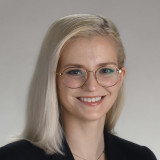The five years of a surgical residency are grueling. The light at the end of the tunnel can feel very far away — when you get paged about the 10th consult of the day or try to remember when you last got an uninterrupted night’s sleep. Some residents even literally count down the number of days left until they walk out of the hospital for the last time. Graduating from residency is a huge accomplishment and the crowning achievement of nearly a decade’s worth of study and training. You’ve made it. The hard part is done.
Or, as I have discovered, it’s not.
After I graduated, I packed up my entire life and moved halfway across the country to start a fellowship at a hospital I’d never been in. I lugged my earthly belongings into an apartment I signed a lease for after only a split-second video call walkthrough in a town I knew nothing about. I went to work the first day not knowing where anything was, how anything worked. It was a leap of faith.
That leap was rewarded with a workplace full of lovely colleagues, an incredible range of clinical opportunities, and a setup for meaningful mentorship as I finally start building my career. But the trials were not done. A trial the magnitude of a tidal wave faced me: a week as staff on call at a tertiary care level 1 trauma center. Due to a series of unfortunate events involving broken bones, I was called up from the minors so early I barely knew where the ORs were. If I thought the call gods would take pity on me, I should have known better. The consults were endless and the add-on cases numerous. “It’s not usually this bad” was a common refrain. And then came the ultimate test of poise: a patient with acute airway obstruction who had been radiated not once but twice, could not lie flat, and needed a tracheostomy now.
In the midst of the flurry of activity of setting up for an emergency case, I got an additional test of confidence. I had introduced myself to the anesthesia resident as the staff and had a detailed discussion of plans A, B, and C for establishing a safe airway for the patient, who was in dire straits. I talked to the scrub tech about what instruments we needed at hand for the surgery and picked out the tracheostomy tubes we would use. As the team rolled the patient into the OR, I felt as ready as I could be for a tricky situation. And then before we could start, the anesthesia staff — who appeared to be around my age — shared he thought I was the intern. The circulating nurse asked aloud if the attending surgeon was going to be there soon. Not a great start. Once I clarified that I was not, in fact, an extremely over-informed resident two weeks into their training, we began the procedure.
The case was extremely difficult, and the patient almost didn’t survive. It was a situation that would have challenged even the most experienced surgeon, but that didn’t lessen the weight of responsibility I felt for trying to sustain this person’s life. The patient left the OR with a secure airway; the hard part was done. But then it wasn’t. They weren’t waking up. And, as it turned out, their child was calling during the surgery to tell the patient they had just gotten engaged — a twist so devastating it sounds like a fiction designed to deliver one last gut punch.
And so we waited to see if the patient would open their eyes, move their hands. Their family was incredible — obviously grieving but also choosing to be hopeful as they let time pass. Their grace was unmatched, and it helped me give myself the grace to accept I did the right thing for this patient. There was no easy option, and any course was fraught with risk. But even under immense pressure, I did my job, the residents did their job, the OR team did its job.
With this trial by fire, things can only get easier, right? Or perhaps they won’t. In any case, I have faith I am ready. Bring it on.
Share your experience transitioning from trainee to attending in the comment section.
Heather is the inaugural Facial Plastic and Reconstructive Surgery fellow at Penn State. Her clinical interests include patient communication, medical education, facial reanimation, and complex reconstructive surgery. Heather was a Doximity Op-Med Fellow in 2021-2022 and 2022-2023, and is a 2023-2024 Doximity Op-Med Fellow.
Illustration by April Brust






